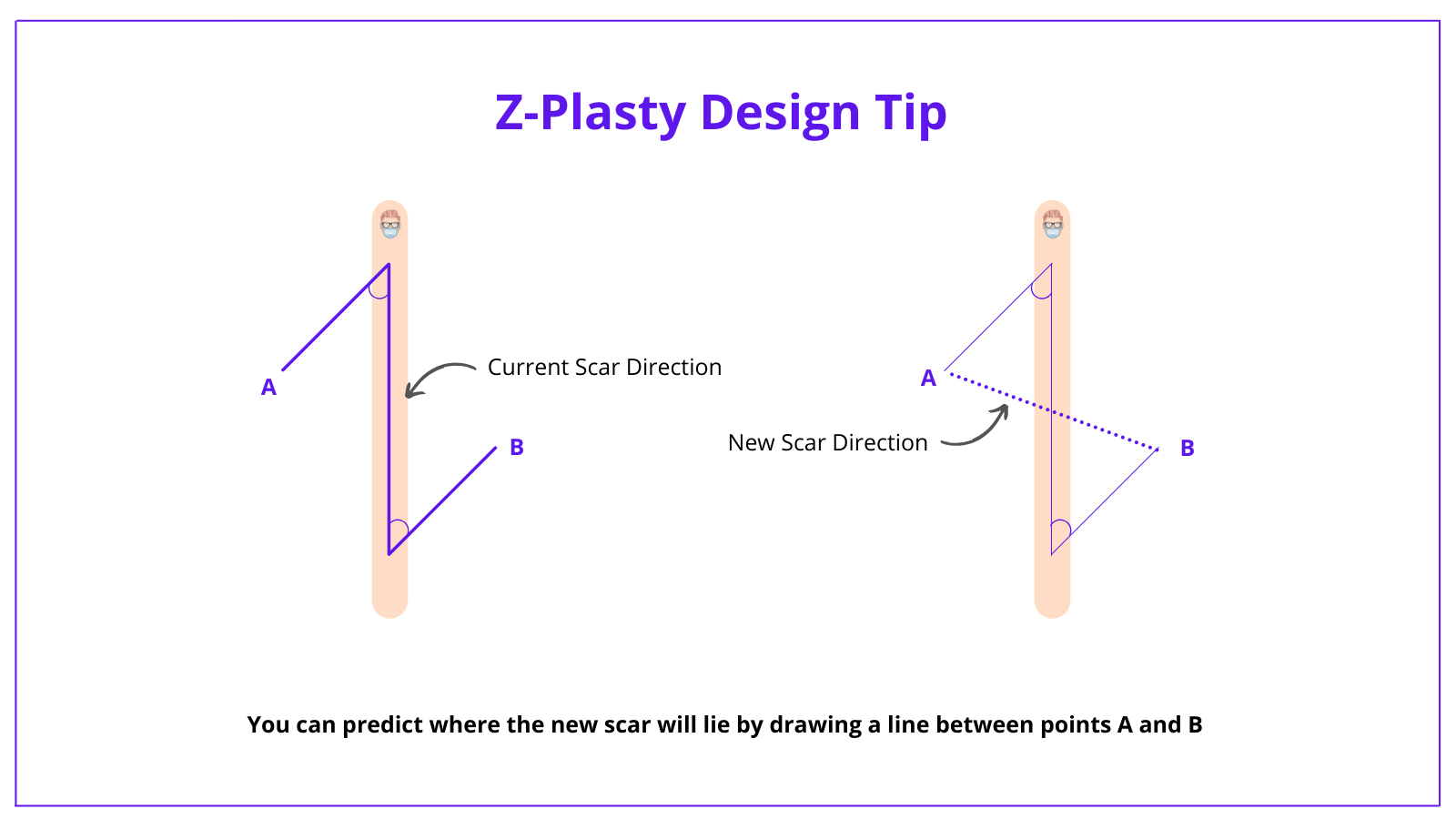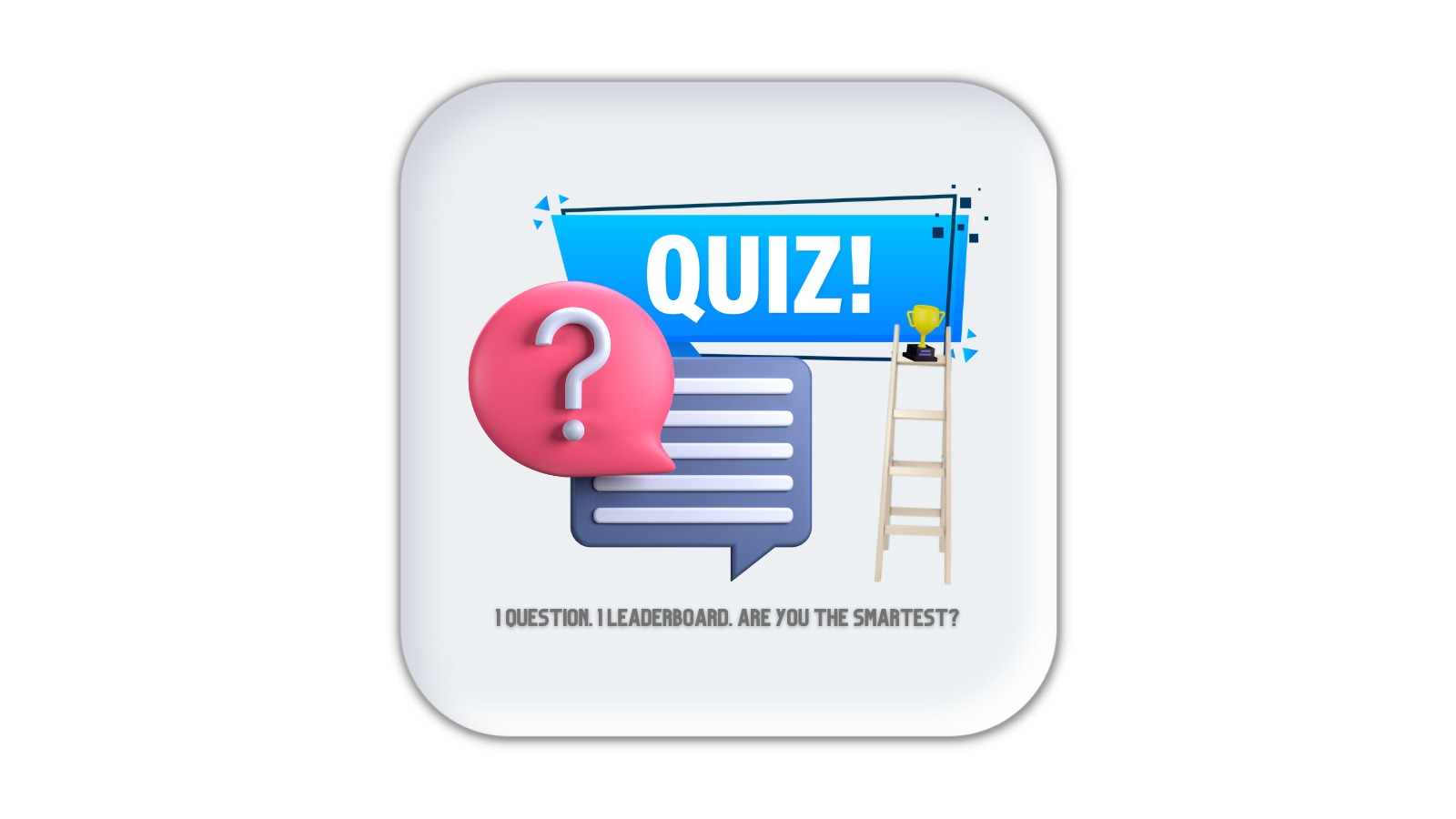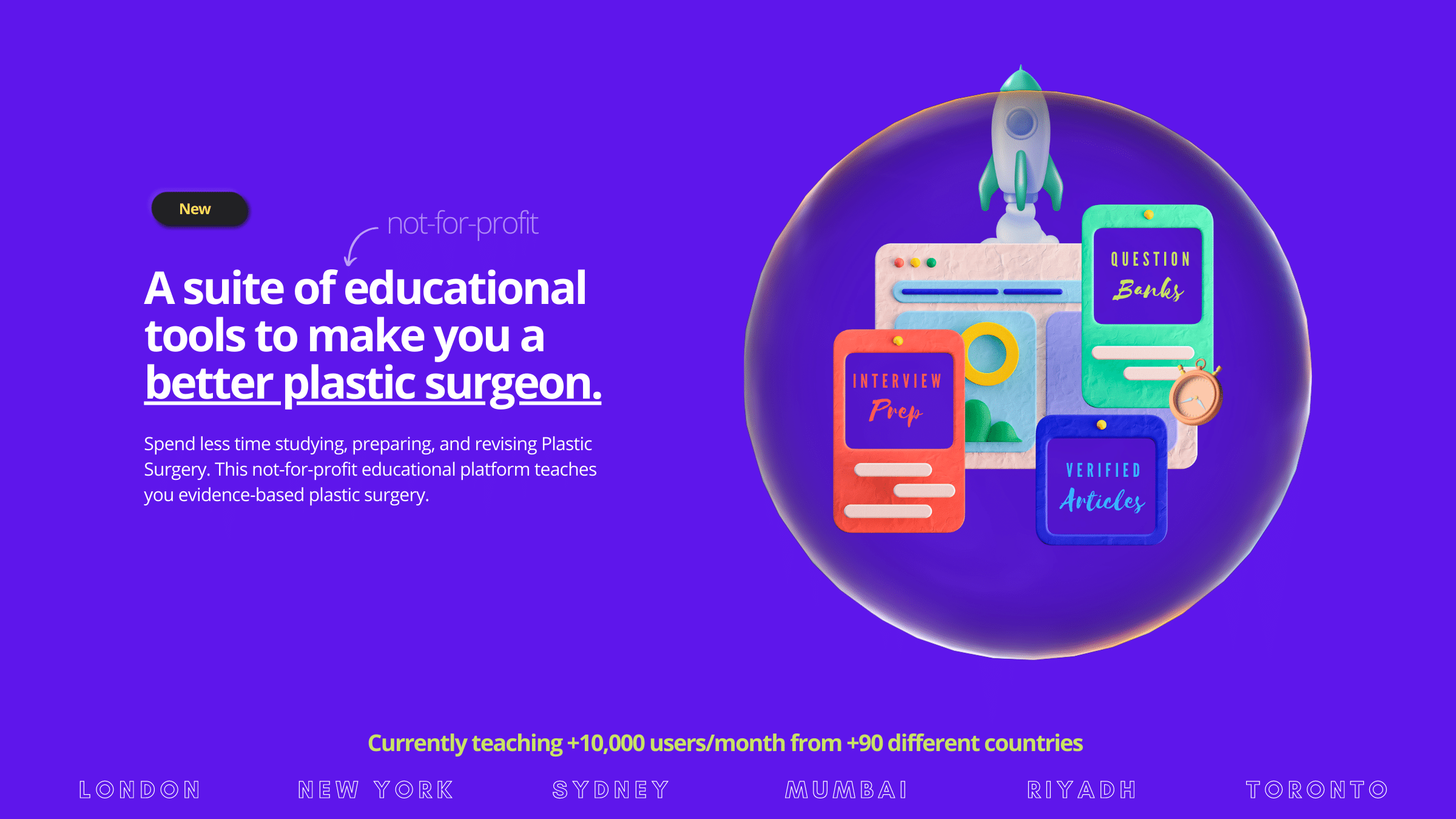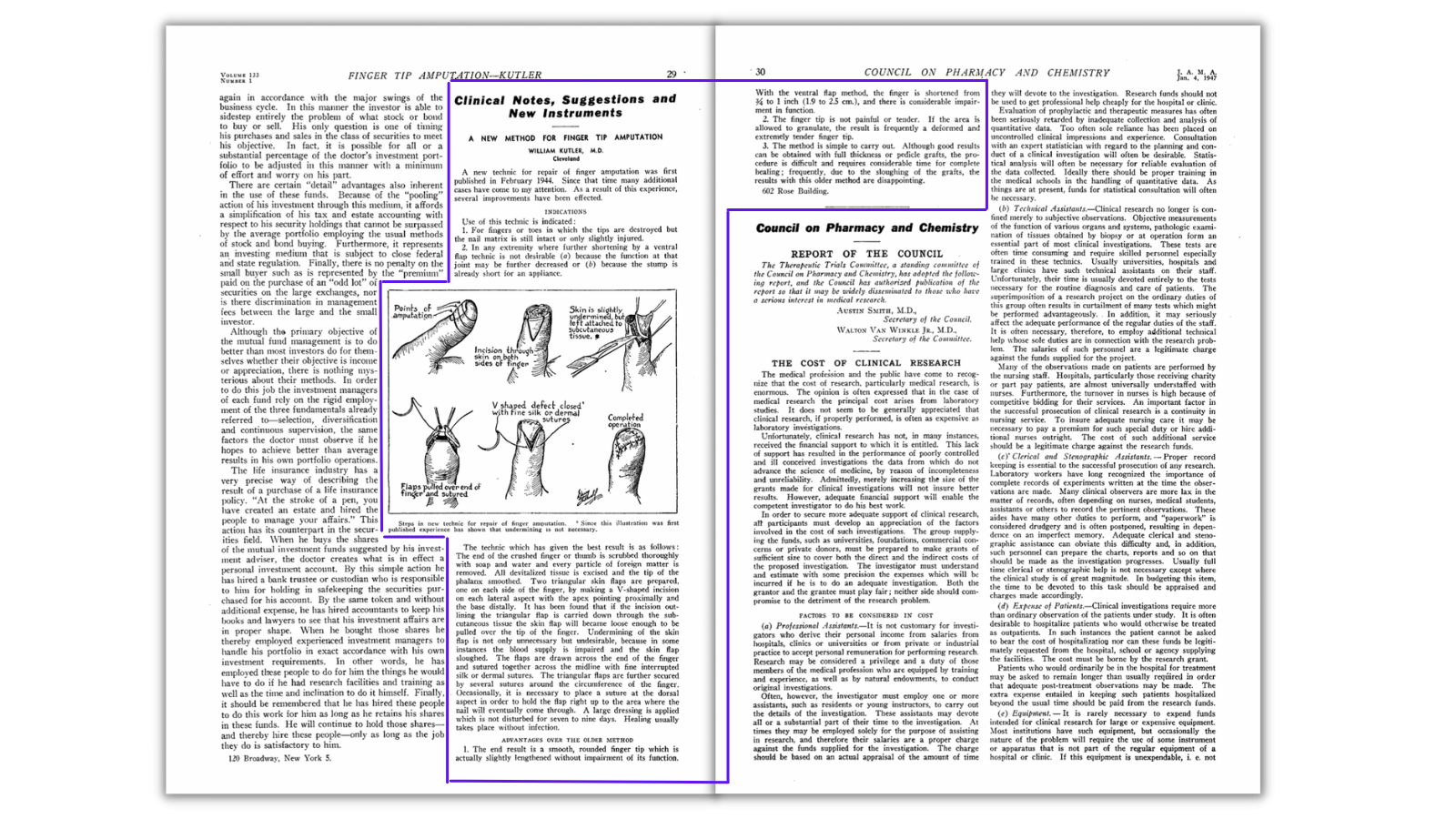1. ✍️ Letter from P'Fella - you're overcomplicating your training.
2. 🤓 Study on Sunday - Design a Z-plasty in 60 seconds.
2. 🧐 Weekly Quiz Competition - Round 3, $100 prize
4. 🎭 Upcoming Events - too many events to keep up!
5. 🐣 Tweets of the Week - memes, illustrations, cases
6. 🚀 New features - thePlasticsPro & Feedback!
7. 📝 Articles of the Week - a rapid review and deep dive!
✍️
A Letter from P'Fella
You're overcomplicating your Plastic Surgery training
One of the biggest challenges facing plastic surgeons is the number of sources available to improve their knowledge and skills. It can be overwhelming. It can lead to your training becoming overcomplicated.
Here are the tips P'Fella has received from the Plastic Surgery community..
- Don't reinvent the "study wheel": if I hand you a piece of paper and say “make notes” you will just be duplicating work from someone else. If I tell you “make flashcards” you will be able to find information and put them into a format that suits your study preference.
- Pick one structure and stick to it: If you use the same study format every time, you don’t have to decide how to structure your notes every time you sit down at a desk. If you decide you don’t take on a study method (for example, highlighting), just don't do it!
- Study for a reason: when you aim to study for the sake of it, it's a waste of time. Find a particular purpose to study. For example, "I need to revise anatomy for this surgery tomorrow", "I need to read over some things before presenting this journal". Create a purpose and you'll be more efficient.
- When you start a new topic, don't forget the other one: when you study you put on the blinkers. You see a topic, you study it, then move it. Make time to return to your study topics. It's called spaced repetition. It works.
- Don’t get bogged down in fine details: as a trainee, your life is easier if you have broad general knowledge rather than specific in-depth knowledge with large gaps in other areas. Over time, you’ll develop specific knowledge.
🤓
Study on Sunday
Design a Z-Plasty in 60 seconds
A z-plasty is a a double transposition aiming to increase and change the direction of a scar. The design is based on 3 limbs, 2 angles, and 1 scar.
The more you think about a z-plasty, the harder it gets. All you need to know is the current scar direction and where you want the new scar direction to be.
Then just join the dots!

🧐
Weekly Quiz Competition

🎭
Upcoming Events
17 Webinars, Conferences, and Courses
- ASPS Spring Meeting - Virtual, March 2022.
- PLASTA ST3 Interview Prep - Virtual, March 17th 2022.
- ASSH - Upper Limb Micro Recon - Virtual, March 26th.
- IFSSH Combined Conference - London, April 2022.
- AAPS Centennial Meeting - San Diego, April 2022.
- BAPRAS AEC Trunk Reconstruction - April 2022.
- BAAPS Masterclass in Aesthetic Practice - London, May 2022.
- RACS 90th Annual Scientific Conference - Brisbane, May 2022.
- British Burns Association Annual Meeting - Bristol, May 2022.
- Australian ASPS Congress - Goldcoast, June 2022
- Aesthetics In-Service Exam - Virtual, June 2022.
- ISAPS World Congress - Istanbul, July 2022
- ICCPCA Cleft Congress - Edinburgh, July 2022
- ASSH Annual Meeting - Boston, September 2022.
- BAAPS Annual Conference 2022 - London, September 2022.
- European Society of Craniofacial Surgery - Oxford, September 2022.
- BARPAS Celtic Meeting - Dunblane, Scotland September 2022
- Plastic Surgery, The Meeting - Boston, October 2022.
- AEC Limb Reconstruction - Virtual, October 2022
🐣
Tweets of the Week
Anesthesia when the surgery resident lets the med student close pic.twitter.com/vDB973tWJR
— Joseph Azar (@JosephHalimAzar) March 11, 2022
Fractura oblicua larga de 4to MTC Seguimiento a 1 sem post operatorio
— Dr. Sergi Barrera Ochoa (@DrBarreraochoa) March 10, 2022
▪️Se realiza mini open dorsal para reducir la fractura y se mantiene reducción temporal con pinza
▪️Fijación percutanea con tornillo BRM 4 mm de @medcomtech_sa 🔩 pic.twitter.com/RzwNbF6a7q
What medical word would be a cute baby name if it didn’t mean what it does?
— Kylie K (@KK_medicine) March 7, 2022
I’ll go first: Vicryl
🚀
New Feature
thePlasticsPro
This is a popular hit! Thanks to everyone for getting early access and testing it out on their 7-day free trial. The feedback has been really positive.

Improving your educational tools
Every time there is a new member to the community they will now get asked a series of rapid-fire questions that takes about 30 seconds. The idea is to get better insight into what you want to see on the platform. After all, this is an educational platform created by you.
I wish I started this earlier! Because I missed out on getting insights into nearly 1500 of you! If you want to do me a favor, you might fill it out quickly??
pretty please :)
📝
Articles of the Week
Rapid Review
Robots for DIEPS??
Robotic Harvest of the Deep Inferior Epigastric Perforator Flap for Breast Reconstruction: A Case Series, Bishop et al, PRS
- Aim: does robotic surgery decrease donor site morbidity in DIEPS?
- Methods: case series (level of evidence IV)
- Results: 21 patients over a 12-month period that had a reduced fascial incision and none needed to be converted to "open"
- Conclusions: a safe and reliable technique that decreases the length of fascial incision and short-term complications associated with the open approach.
This is a non-inferiority study.
It is also a study that can really only impact a select few plastic surgeons that are actually training in robotic surgery.
The study is based on the premise that donor site morbidity is a huge problem DIEPS. Well, it isn't. It is a recognized issue but can be overcome with different abdominal wall closure techniques.
It will be great to see more studies that focus on the impact on microsurgery outcomes. It's one to watch!
Deep Dive:
A Landmark Paper that changes our practice.

Level of Evidence: IV (Case Series)
This is for thePlasticsPro
Join the Club to enjoy unlimited access to all of thePlasticsFella.
Join the Club

